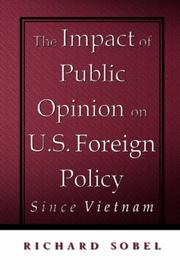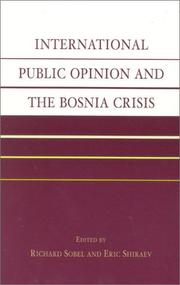| Listing 1 - 10 of 22 | << page >> |
Sort by
|
Book
ISBN: 9782296038042 Year: 2007 Publisher: Paris : L'Harmattan,
Abstract | Keywords | Export | Availability | Bookmark
 Loading...
Loading...Choose an application
- Reference Manager
- EndNote
- RefWorks (Direct export to RefWorks)
Globalization --- Economics --- Markets --- Mondialisation --- Economie politique --- Marchés --- Polanyi, Karl, --- Marches --- Marchés --- Polanyi, Karl (1886-1964) --- Économie de marché --- Capitalisme --- Critique et interprétation --- Histoire --- Économie de marché --- Critique et interprétation
Book
ISBN: 1316849570 1316414639 1316848736 1107128293 110756803X Year: 2016 Publisher: Cambridge, England : Cambridge University Press,
Abstract | Keywords | Export | Availability | Bookmark
 Loading...
Loading...Choose an application
- Reference Manager
- EndNote
- RefWorks (Direct export to RefWorks)
Citizenship as Foundation of Rights explores the nature and meaning of American citizenship and the rights flowing from citizenship in the context of current debates around politics, including immigration. The book explains the sources of citizenship rights in the Constitution and focuses on three key citizenship rights - the right to vote, the right to employment, and the right to travel in the US. It explains why those rights are fundamental and how national identification systems and ID requirements to vote, work and travel undermine the fundamental citizen rights. Richard Sobel analyzes how protecting citizens' rights preserves them for future generations of citizens and aspiring citizens here. No other book offers such a clarification of fundamental citizen rights and explains how ID schemes contradict and undermine the constitutional rights of American citizenship.
Book
ISBN: 9782757403860 Year: 2012 Publisher: Villeneuve d'Ascq Presses universitaires du Septentrion
Abstract | Keywords | Export | Availability | Bookmark
 Loading...
Loading...Choose an application
- Reference Manager
- EndNote
- RefWorks (Direct export to RefWorks)
Capitalism --- Marxian economics --- Social aspects --- Marx, Karl.

ISBN: 0195105281 Year: 2001 Publisher: New York Oxford Oxford University Press
Abstract | Keywords | Export | Availability | Bookmark
 Loading...
Loading...Choose an application
- Reference Manager
- EndNote
- RefWorks (Direct export to RefWorks)
Book
ISBN: 9781316414637 9781107128293 9781107568037 Year: 2016 Publisher: Cambridge Cambridge University Press
Abstract | Keywords | Export | Availability | Bookmark
 Loading...
Loading...Choose an application
- Reference Manager
- EndNote
- RefWorks (Direct export to RefWorks)

ISBN: 0739104799 0739156578 9780739156575 Year: 2002 Publisher: Lanham Lexington Books
Abstract | Keywords | Export | Availability | Bookmark
 Loading...
Loading...Choose an application
- Reference Manager
- EndNote
- RefWorks (Direct export to RefWorks)
International Public Opinion and the Bosnia Crisis examines-through U.S., Canadian, and European case studies-how public reaction impacted democratic governments' response to the ethnic and religious conflict in Bosnia, 1991-1997.
Yugoslav War, 1991-1995 --- Guerre dans l'ex-Yougoslavie, 1991-1995 --- Public opinion --- Opinion publique --- War in former Yugoslavia, 1991-1995 --- Yugoslav Conflict, 1991-1995 --- Yugoslav Wars of Secession, 1991-1995 --- Yugoslav War Crime Trials, Hague, Netherlands, 1994 --- -Public opinion. --- Public opinion.
Book
ISBN: 9782296568358 2296568351 Year: 2011 Publisher: Paris: L'Harmattan,
Abstract | Keywords | Export | Availability | Bookmark
 Loading...
Loading...Choose an application
- Reference Manager
- EndNote
- RefWorks (Direct export to RefWorks)
Book
ISBN: 9782296089679 2296089674 Year: 2009 Publisher: Paris: L'Harmattan,
Abstract | Keywords | Export | Availability | Bookmark
 Loading...
Loading...Choose an application
- Reference Manager
- EndNote
- RefWorks (Direct export to RefWorks)
Article
Abstract | Keywords | Export | Availability | Bookmark
 Loading...
Loading...Choose an application
- Reference Manager
- EndNote
- RefWorks (Direct export to RefWorks)
Book
ISBN: 9782715424616 2715424612 2715424612 Year: 2024 Publisher: Paris: Que sais-je ?,
Abstract | Keywords | Export | Availability | Bookmark
 Loading...
Loading...Choose an application
- Reference Manager
- EndNote
- RefWorks (Direct export to RefWorks)
Intellectuel juif de la Mitteleuropa de l'entre-deux-guerres contraint de fuir le nazisme, Karl Polanyi (1886-1964) est l'auteur d'une œuvre pluridisciplinaire qui replace l'économie dans son indépassable encastrement social et écologique. Il donne des clés pour comprendre ce qui a provoqué l'effondrement des sociétés européennes dans les années 1920-1930. Sa conviction est ferme : le fascisme est une conséquence du libéralisme économique et donc l'épilogue du bouleversement provoqué par un système capitaliste qui organise le monde selon une logique de marché autorégulateur. Si, après guerre, une « grande transformation » avait permis de réguler cette logique, l'avènement du néolibéralisme a relancé un mouvement de marchandisation et réactivé le risque d'effondrement. Nicolas Postel et Richard Sobel se penchent sur la trajectoire et l'œuvre d'un économiste essentiel du XXe siècle. Ils montrent combien son interprétation des rapports entre économie et société et, plus précisément, entre marché et démocratie est novatrice, et combien elle résonne de nos jours avec acuité.
Philosophie économique. --- Politique économique --- Conditions économiques --- Polanyi, Karl, --- Polanyi, Karl, 1886-1964 --- Economic history --- Polanyi, Karl, - 1886-1964 --- Economics --- Economic policy. --- Philosophy. --- Europe --- Economic conditions
| Listing 1 - 10 of 22 | << page >> |
Sort by
|

 Search
Search Feedback
Feedback About UniCat
About UniCat  Help
Help News
News